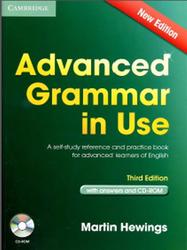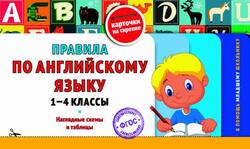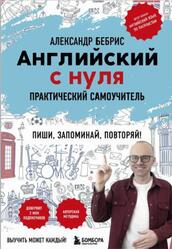There are 100 units in the book, each looking at a particular area of grammar. Some sections within each unit focus on the particular use of a grammatical pattern, such as will be + -ing (as in will be travelling): others explore grammatical contrasts, such as whether to use would or used to in reporting past events, or when we use except or except for. The 100 units are grouped under a number of headings such as Tenses and The future, and you can find details of this in the Contents. Each unit consists of two pages. On the left-hand page are explanations and examples; on the right-hand page are practice exercises. The letters next to each exercise show you which section(s) of the left-hand page you need to understand to do that exercise.
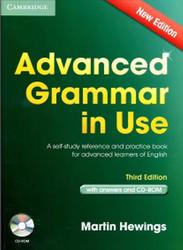
Present continuous and present simple 2.
We often use the present simple and present continuous in stories and jokes in informal spoken English to create the impression that events are happening now. This can make them more direct and exciting and hold people's attention:
She goes up to this man and looks straight into his eyes. He's not wearing his glasses, and he doesn't recognise her...
This man's playing golf when a kangaroo bounds up to him, grabs his club and hits his ball about half a mile ...
The main events are usually described in sequence using the present simple and longer background events are described using the present continuous.
In narratives and anecdotes the present simple can be used to highlight an event. Often it is used after past tenses and with a phrase such as suddenly or all of a sudden:
I was sitting in the park, reading a newspaper, when all of a sudden this dog jumps at me.
Contents.
Thanks.
To the student.
To the teacher.
Tenses.
1 Present continuous and present simple 1.
2 Present continuous and present simple 2.
3 Past simple and present perfect.
4 Past continuous and past simple.
5 Past perfect and past simple.
6 Present perfect continuous and present perfect.
7 Past perfect continuous, past perfect and past continuous.
8 Present and past time: review.
The future.
9 Will and be going to.
10 Present simple and present continuous for the future.
11 Future continuous and future perfect (continuous).
12 Be to + infinitive; be about to + infinitive.
13 Other ways of talking about the future.
14 The future seen from the past.
Modals and semi-modals.
15 Can, could, be able to and be allowed to.
16 Will, would and used to.
17 May and might.
18 Must and have (got) to.
19 Need(n't), don't need to and don't have to.
20 Should, ought to and had better.
Linking verbs, passives, questions.
21 Linking verbs: be, appear, seem; become, get, etc.
22 Forming passive sentences 1.
23 Forming passive sentences 2: verb + -ing or to-infinitive.
24 Using passives.
25 Reporting with passives; It is said th a t ...
26 Wh-questions with who, whom, which, how and whose.
27 Negative questions; echo questions; questions with that-clauses.
Verb complementation: what follows verbs.
28 Verbs, objects and complements.
29 Verb + two objects.
30 Verb + -ing forms and infinitives 1.
31 Verb + -ing forms and infinitives 2.
Reporting.
32 Reporting people's words and thoughts.
33 Reporting statements: that-clauses.
34 Verb + wh-clause.
35 Tense choice in reporting.
36 Reporting offers, suggestions, orders, intentions, etc.
37 Modal verbs in reporting.
38 Reporting what people say using nouns and adjectives.
39 Should in that-clauses; the present subjunctive.
Nouns.
40 Agreement between subject and verb 1.
41 Agreement between subject and verb 2.
42 Agreement between subject and verb 3.
43 Compound nouns and noun phrases.
Articles, determiners and quantifiers.
44 A/an and one.
45 A / an, the and zero article 1.
46 A / an, the and zero article 2.
47 A / an, the and zero article 3.
48 Some and any.
49 No, none (of) and not any.
50 Much (of), many (of), a lot of, lots (of), etc.
51 All (of), whole, every, each.
52 Few, little, less, fewer.
Relative clauses and other types of clause.
53 Relative pronouns.
54 Other relative words: whose, when, whereby, etc.
55 Prepositions in relative clauses.
56 Other ways of adding information to noun phrases 1: additional noun phrases, etc.
57 Other ways of adding information to noun phrases 2: prepositional phrases, etc.
58 Participle clauses with adverbial meaning 1.
59 Participle clauses with adverbial meaning 2.
Pronouns, substitution and leaving out words.
60 Reflexive pronouns: herself, himself, themselves, etc.
61 One and ones.
62 So and not as substitutes for clauses, etc.
63 Do so; such.
64 More on leaving out words after auxiliary verbs.
65 Leaving out to-infinitives.
Adjectives and adverbs.
66 Position of adjectives.
67 Gradable and non-gradable adjectives 1.
68 Gradable and non-gradable adjectives 2.
69 Participle adjectives and compound adjectives.
70 Adjectives + to-infinitive, -ing, that-clause, wh-clause.
71 Adjectives and adverbs.
72 Adjectives and adverbs: comparative and superlative forms.
73 Comparative phrases and clauses.
74 Position of adverbs 1.
75 Position of adverbs 2.
76 Adverbs of place, direction, indefinite frequency, and time.
77 Degree adverbs and focus adverbs.
78 Comment adverbs and viewpoint adverbs.
Adverbial clauses and conjunctions.
79 Adverbial clauses of time.
80 Giving reasons: as, because, etc.; for and with.
81 Purposes and results: in order to, so as to, etc.
82 Contrasts: although and though; even though / if; while, whilst and whereas.
83 If 1.
84 If 2.
85 If I were you ...; imagine he were to win.
86 I f ... not and unless; if and whether; etc.
87 Connecting ideas in a sentence and between sentences.
Prepositions.
88 Prepositions of position and movement.
89 Between and among.
90 Prepositions of time.
91 Talking about exceptions.
92 Prepositions after verbs.
93 Prepositions after nouns.
94 Two- and three-word verbs: word order.
Organising information.
95 There is, there was, etc.
96 It 1.
97 It 2.
98 Focusing: it-clauses and what-clauses.
99 Inversion 1.
100 Inversion 2.
Appendix 1 Irregular verbs.
Appendix 2 Passive verb forms.
Glossary.
Study planner.
Grammar reminder.
Additional exercises.
Key to Exercises.
Key to Study planner.
Key to Additional exercises.
Index of grammatical items.
Index of lexical items.
Бесплатно скачать электронную книгу в удобном формате, смотреть и читать:
Скачать книгу Advanced Grammar in Use, Third Edition, Martin Hewings, 2013 - fileskachat.com, быстрое и бесплатное скачивание.
Скачать pdf
Ниже можно купить эту книгу, если она есть в продаже, и похожие книги по лучшей цене со скидкой с доставкой по всей России.Купить книги
Скачать - pdf - Яндекс.Диск.
Дата публикации:
Теги: учебник по английскому языку :: английский язык :: Martin Hewings
Смотрите также учебники, книги и учебные материалы:
Следующие учебники и книги:
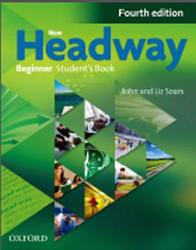 New Headway, Beginner, Student’s book, Soars J., Soars L., 2013 — New Headway, Beginner, Student s book, Fourth edition, Soars J., Soars L., 2013. Фрагмент из книги: This is a photograph … Книги по английскому языку
New Headway, Beginner, Student’s book, Soars J., Soars L., 2013 — New Headway, Beginner, Student s book, Fourth edition, Soars J., Soars L., 2013. Фрагмент из книги: This is a photograph … Книги по английскому языку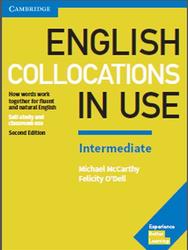 English Collocations In Use, Intermediate, McCarthy M., O Dell F., 2017 — The book has 60 two-page units. The left-hand page presents the collocations that are focused on in the unit. You … Книги по английскому языку
English Collocations In Use, Intermediate, McCarthy M., O Dell F., 2017 — The book has 60 two-page units. The left-hand page presents the collocations that are focused on in the unit. You … Книги по английскому языку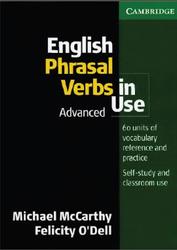 English Phrasal Verbs In Use, Advanced, McCarthy M., O Dell F., 2007 — It was written to help you take your knowledge of phrasal verbs to a more advanced level. It is intended … Книги по английскому языку
English Phrasal Verbs In Use, Advanced, McCarthy M., O Dell F., 2007 — It was written to help you take your knowledge of phrasal verbs to a more advanced level. It is intended … Книги по английскому языку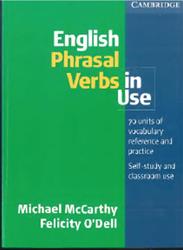 English Phrasal Verbs In Use, McCarthy M., O Dell F., 2004 — This book, like all our other books in the In Use series, is the result of the work of many … Книги по английскому языку
English Phrasal Verbs In Use, McCarthy M., O Dell F., 2004 — This book, like all our other books in the In Use series, is the result of the work of many … Книги по английскому языку
Предыдущие статьи:
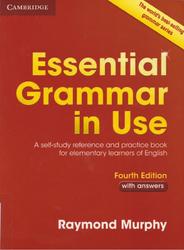 Essential Grammar in Use, Fourth Edition, With answers, E-book, Murphy R., 2015 — The book can be used by students working alone (see To the student) or as supplementary course material. In either … Книги по английскому языку
Essential Grammar in Use, Fourth Edition, With answers, E-book, Murphy R., 2015 — The book can be used by students working alone (see To the student) or as supplementary course material. In either … Книги по английскому языку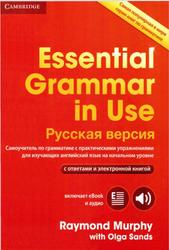 Essential Grammar in Use, русская версия, С ответами и электронной книгой, Murphy R., Sands O., 2017 — Настоящее пособие рассчитано на учащихся начального уровня, то есть учащихся сочень незначительным знанием английского языка, но не на начинающих с … Книги по английскому языку
Essential Grammar in Use, русская версия, С ответами и электронной книгой, Murphy R., Sands O., 2017 — Настоящее пособие рассчитано на учащихся начального уровня, то есть учащихся сочень незначительным знанием английского языка, но не на начинающих с … Книги по английскому языку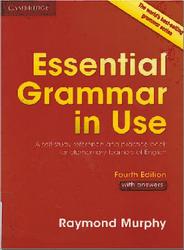 Essential Grammar in Use, Fourth Edition, Murphy R., 2015 — This is a grammar book for elementary students of English. There are 115 units in the book and each unit … Книги по английскому языку
Essential Grammar in Use, Fourth Edition, Murphy R., 2015 — This is a grammar book for elementary students of English. There are 115 units in the book and each unit … Книги по английскому языку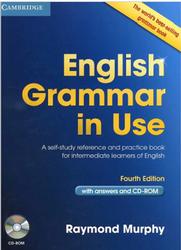 English Grammar in Use, Fourth Edition, Murphy R., 2012 — This is the fourth edition of English Grammar in Use. I wrote the original edition when I was a teacher … Книги по английскому языку
English Grammar in Use, Fourth Edition, Murphy R., 2012 — This is the fourth edition of English Grammar in Use. I wrote the original edition when I was a teacher … Книги по английскому языку

